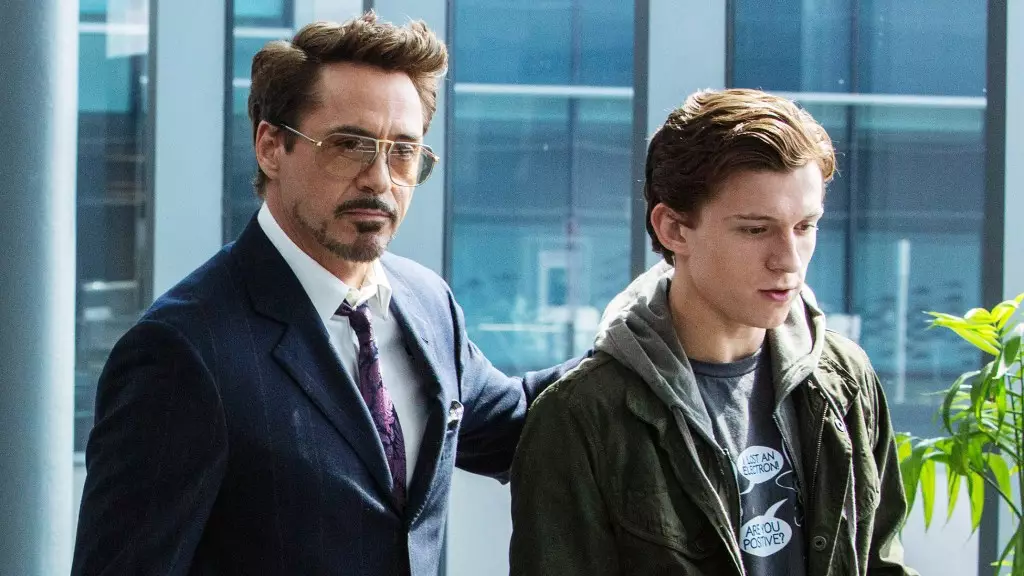When Tom Holland landed the role of Spider-Man, he joined a star-studded cast in the Marvel Cinematic Universe (MCU), including actors who had become legends in the industry. Among these, Robert Downey Jr. stood out, not only for his performance as Iron Man but also for his reputation as a mentor. Holland recently recounted a touching moment from his first day on the set of Captain America: Civil War, where Downey demonstrated a level of support and kindness that would leave a lasting impression on the young actor.
During Holland’s audition, he had prepared an extensive eight-page dialogue, much longer than the typical two-page audition script. This preparation indicated Holland’s seriousness and dedication to embodying the iconic superhero. However, when the production team chose to cut significant portions of his lines for the final shoot, Holland felt anxiety about how his character would be represented. Downey’s immediate response to the changes showcased his understanding of the importance of a character’s voice and the narrative integrity of the story.
Robert Downey Jr.’s challenge to the film’s directors, the Russo brothers, emphasized a critical element of storytelling—character fluidity. He insisted that the emotional depth of a character should not be compromised for the sake of brevity. By encouraging the production team to keep all of Holland’s lines, Downey showcased the value of collaboration and mutual respect among actors, especially in a medium that often prioritizes spectacle over substance.
Holland’s recounting of this moment sheds light on not only the dynamics on set but also the cultural atmosphere of the MCU, which has often celebrated mentorship and shared success. The emotional support from an established actor helps cultivate a safe environment where newcomers can confidently express themselves, knowing that their contributions are valued.
This experience with Downey has significantly impacted Holland, inspiring him to extend the same kind of mentorship to younger actors. During the podcast, Holland expressed a desire to replicate Downey’s generosity, particularly in hopes of bringing Miles Morales into his Spider-Man universe. This reflection aspires to uphold the legacy of mentorship within the industry, particularly as young actors navigate their first forays into acting fame.
Holland’s own rise within the MCU—culminating in starring roles in major films such as Spider-Man: Homecoming and Spider-Man: No Way Home—has further cemented his accountability towards fans and his peers. “I owe it to the fans to deliver the best version of what the next chapter for Spider-Man looks like,” he stated. This acknowledgment of responsibility embodies the essence of what makes mentorship truly valuable: a continuous cycle of support and growth.
As Holland prepares for the fourth installment of the Spider-Man franchise, he shared his excitement about evolving the character further. With a draft already in place, he emphasized the need for thoughtful refinement, showcasing his dedication not just to the role but to his audience as well. Holland’s genuine enthusiasm for the project, paired with collaborative sessions with co-stars like Zendaya, reflects how deeply personal investment is vital for successful storytelling in cinema.
The anticipation surrounding the next chapter of Spider-Man further underscores an essential truth: creative expression thrives in environments that nurture talent and emphasize collaboration. Holland’s recollections of Downey’s mentorship remind both fans and fellow actors alike of the profound impact kindness can have, resonating beyond individual moments and creating a legacy of creativity and collaboration that will define future generations in the film industry.
In the competitive world of Hollywood, mentorship plays a pivotal role in shaping careers and fostering a culture of support. Through Tom Holland’s experiences with Robert Downey Jr., we see how acts of kindness can not only bolster confidence but also pave the way for a sustainable legacy in storytelling. Holland’s insights and aspirations to mentor others only serve to reinforce the importance of shared experiences and guidance in a world that is continuously evolving. As the MCU continues to grow, so too does the importance of nurturing the next generation of storytellers, ensuring that the cycle of mentorship and collaboration thrives.



Leave a Reply